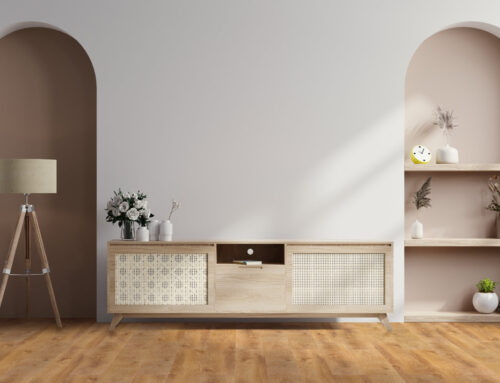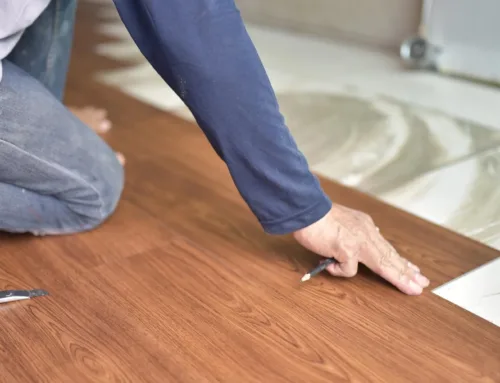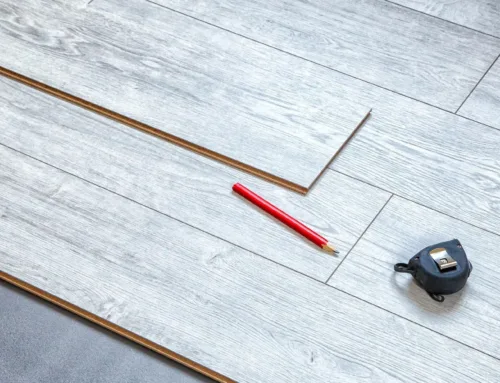Radiant heating systems have gained popularity for their efficiency and ability to evenly heat spaces from the ground up. However, not all flooring materials are equally suited for this type of heating. Engineered hardwood floors stand out as an excellent choice for use over radiant heating systems, combining beauty, durability, and practicality. Let’s explore why engineered hardwood is a superior option and how it enhances the comfort and functionality of radiant heating.
Engineered Hardwood: Structure and Stability
One of the key reasons engineered hardwood flooring performs well over radiant heating is its construction. Unlike solid hardwood, which consists of a single piece of wood, engineered hardwood is made by layering a hardwood veneer over multiple layers of plywood or high-density fiberboard (HDF). This layered structure enhances dimensional stability, making it more resistant to expansion and contraction caused by temperature changes.
Radiant heating systems operate by heating the subfloor and transferring warmth upward, which can create fluctuations in temperature and humidity. Solid hardwood is prone to warping and cupping under these conditions, but the cross-layered design of engineered hardwood minimizes these risks, ensuring a longer-lasting and more reliable floor.
Better Heat Conduction and Efficiency
Engineered hardwood is an excellent conductor of heat, allowing radiant heating systems to work more efficiently. The thin top layer of real wood, combined with the dense core, permits quick and even heat transfer. This ensures that rooms warm up faster and stay comfortably heated.
Thicker flooring materials, like some solid hardwoods or carpets, can impede heat transfer and reduce the system’s efficiency. Engineered hardwood’s balance of thickness and material composition makes it an ideal partner for radiant heating, offering both warmth and energy savings.
Compatible with a Wide Range of Designs
Homeowners often want a cohesive design that complements their heating system without sacrificing aesthetics. Engineered hardwood offers a wide variety of finishes, colors, and wood species, from classic oak to exotic maple or walnut. This versatility means you can achieve the look of traditional hardwood flooring while enjoying the benefits of radiant heating.
Additionally, engineered hardwood can be installed in various patterns, such as herringbone or chevron, allowing for unique and elegant floor designs. This adaptability enhances the overall appeal of your living space, blending functionality with visual charm.
Moisture Resistance and Longevity
Radiant heating systems are often installed in rooms like bathrooms, kitchens, and basements—areas where moisture levels can fluctuate. Engineered hardwood is more resistant to moisture compared to solid hardwood, thanks to its layered construction.
This resistance ensures that the flooring doesn’t suffer from the swelling or shrinking often associated with wood in humid conditions. Combined with proper installation and maintenance, engineered hardwood floors can last for decades without compromising their appearance or structural integrity, even in areas exposed to higher humidity.
Easy Installation over Radiant Heating Systems
Engineered hardwood is compatible with multiple installation methods, including floating, glue-down, and nail-down techniques. This flexibility makes it easier to install over radiant heating systems. Floating installations, for example, are particularly popular for radiant heating as they allow for slight movement of the flooring without compromising its stability or heat transfer.
Moreover, many engineered hardwood products are designed with click-and-lock systems, simplifying the installation process. Professional installers can ensure that the floor is securely in place while maintaining proper spacing and allowances for heat-related expansion.
Environmentally Friendly Choice
For environmentally conscious homeowners, engineered hardwood is a sustainable option. Its core layers are often made from fast-growing or recycled wood products, reducing the demand for solid hardwood resources. Additionally, its durability means fewer replacements over time, minimizing waste.
When paired with the energy efficiency of radiant heating systems, engineered hardwood floors contribute to an eco-friendly home, reducing both carbon footprint and energy bills.
Comfortable and Quiet Underfoot
Radiant heating combined with engineered hardwood offers a cozy and quiet flooring solution. Engineered hardwood retains just the right amount of heat, creating a warm surface that is pleasant to walk on, especially during colder months.
Unlike tile or stone, which can sometimes feel overly warm or hard underfoot, engineered hardwood provides a natural, soft texture. It also helps dampen noise, contributing to a more tranquil home environment—a significant advantage in households with active families or pets.
Tips for Maximizing Performance
To ensure the best results, homeowners should follow specific guidelines when pairing engineered hardwood with radiant heating. Always choose flooring products explicitly labeled as compatible with radiant systems, and consult the manufacturer’s instructions for installation and temperature limits.
Maintaining stable indoor humidity levels, typically between 30% and 50%, is also crucial to prevent wood from drying out or cracking. Additionally, gradual temperature adjustments can help avoid sudden stress on the flooring material.
Engineered Hardowod Flooring is a great Option for All
Engineered hardwood floors offer an unbeatable combination of beauty, durability, and practicality, making them an ideal choice for homes with radiant heating systems. Their structural stability ensures resistance to temperature and moisture fluctuations, while their efficient heat conduction enhances the performance of the heating system. With a wide range of styles and finishes, engineered hardwood complements any design aesthetic, providing warmth, comfort, and elegance to your living space.
Investing in engineered hardwood flooring not only improves the functionality of your radiant heating system but also elevates the overall ambiance and value of your home. For homeowners seeking the perfect balance of form and function, engineered hardwood is a clear winner. If you need more help please contact our Atlanta, Boise or Spokane branches.
Author Profile
- I have worked in hardwood flooring for the last 8 years. Use to run a company of residential crews as well as a company with gym flooring. If you need floor installation or refinishing help, I should have an answer or at least get you in the right direction.
Latest entries
 FlooringJanuary 15, 2026Does New Hardwood Flooring Increase Your Home Value?
FlooringJanuary 15, 2026Does New Hardwood Flooring Increase Your Home Value? FlooringJanuary 14, 2026Can You Refinish Engineered Hardwood?
FlooringJanuary 14, 2026Can You Refinish Engineered Hardwood? FlooringJanuary 10, 2026What Wood Floor Color Do I Choose?
FlooringJanuary 10, 2026What Wood Floor Color Do I Choose? FlooringJanuary 9, 2026How To Prevent Hardwood Floor Moisture Problems?
FlooringJanuary 9, 2026How To Prevent Hardwood Floor Moisture Problems?




